Recent Posts
- Vinovation: Exploring the Coolest Techniques in Modern Winemaking
- Wine Spotlight: A South African Symphony – Pinotage Elegance
- Wine Spotlight: Bold Elegance – South African Shiraz Unveiled
- Spring is Almost Here! Chilean Grapes & Juices + South African Juices Available For Purchase
- Spring Into Winemaking: Discover Musto Wine Grape Co.’s Spring Offerings
Archives
- June 2025
- March 2025
- February 2025
- November 2024
- September 2024
- August 2024
- April 2024
- March 2024
- January 2024
- December 2023
- November 2023
- October 2023
- September 2023
- August 2023
- July 2023
- June 2023
- May 2023
- April 2023
- March 2023
- February 2023
- September 2022
- August 2022
- April 2022
- March 2022
- December 2021
- November 2021
- October 2021
- September 2021
- August 2021
- July 2021
- June 2021
- May 2021
- April 2021
- March 2021
- February 2021
- October 2020
- September 2020
- August 2020
- July 2020
- June 2020
- May 2020
- April 2020
- March 2020
- February 2020
- January 2020
- December 2019
- November 2019
- October 2019
- September 2019
- August 2019
- July 2019
- April 2019
- March 2019
- February 2019
- January 2019
- December 2018
- November 2018
- October 2018
- September 2018
- August 2018
- July 2018
- June 2018
- May 2018
- April 2018
- March 2018
- February 2018
- January 2018
- November 2017
- October 2017
- September 2017
- August 2017
- July 2017
- June 2017
- May 2017
- April 2017
- March 2017
- February 2017
- January 2017
- December 2016
- November 2016
- October 2016
- September 2016
- August 2016
- July 2016
- June 2016
- May 2016
- April 2016
- March 2016
- February 2016
- January 2016
- September 2015
- August 2015
- April 2015
- February 2015
- January 2015
- December 2014
- November 2014
- September 2014
- July 2014
- June 2014
- March 2014
- June 2013
- July 2012
Categories
oak barrels
What does the Toast Level of a Wine Barrel really mean?
There are many arguments among barrel coopers and winemakers as to what species of oak is best for ageing wine. While it is true that French/American/Hungarian oaks all impart unique characteristics in wine, perhaps the most important differences between barrels is not the origin of the wood, but rather its level of toast.
What does the Toast Level of a Barrel really mean?
The toast level refers to how long the barrel is toasted in order to impart certain flavors in your wine. The toast helps caramelize the sugars in the wood. There are 19 different toast levels, however, most winemakers work with Light, Medium, and Heavy toasted barrels.
How are Barrels Toasted?
The coopers use pieces of wood from the stave cutting process and place those into the oak wood fire. It is then set on fire when the barrel is positioned over it, and the toasting process begins. Coopers monitor the temperature closely to prevent any burns or blisters from forming inside of the barrel. The temperature is also key to getting the toast level correct. Then the master coopers will check for any imperfections and update the barrel accordingly.
What does Light Toast mean?
Lightly toasted oak barrels or oak chips usually impart sweet and creamy characteristics. Light toast usually works best with white wines such as Chardonnay, Sauvignon Blanc, Semillon, and Chenin Blanc.
Sweet Characteristics:
- Brown Sugar
- Bourbon
- Cotton Candy
- Chocolate
- Maple Syrup
- Butterscotch
- Hot Fudge
- Caramel
- Molasses
- Honey
- Toffee
- Soy
Creamy Characteristics:
- Vanilla
- Cream Soda
- Marshmallow
- Lactic
- Butter
American Oak Light Toast Chips
What does Medium Toast mean?
Medium toasted barrels and other oak products impart more yeasty, nutty, and lightly roasted flavors. Medium toasted oak usually works best for red wines such as Red Blends, Cabernet Sauvignon, Cabernet Franc, Zinfandel, Carignane, Syrah, Pinot Noir, and Petite Sirah.
Yeasty:
- Popcorn
- Baked Bread
- Bread Stick
- Cookie Dough
Nutty:
- Hazelnut
- Walnut
- Almond
- Peanut Butter
- Coconut
Roasted:
- Cedar
- Graham Cracker
- Toasted Bread
- Coffee
- Mocha
- Cereal
American Oak Medium Toast Chips
What does Heavy Toast mean?
Heavier toasted barrels and oak infusions usually impart more bold smoky and spicy characteristics. Heavily toasted oak is used for most fortified wines like Port, Sherry, Brandy, and Cognac. However, some winemakers are playing around with heavier toasts by leaving the wine in the barrel for short periods of time. This way they impart the flavors they desire without over oaking their wine.
Smoky:
- Barbecue
- Grilled Meat
- Bacon
- Sweet Smoke
- Burnt Sugar
Spicy:
- Nutmeg
- Cinnamon
- Clove
- Licorice
- Anise
American Oak Heavy Toast Chips
So not only can the oak impart flavors, but your toast levels do matter! Think of them as a part of your “Winemaker’s Spice Cabinet”. Just another touch that can bring in and impart more complex flavors.
Winemaker Spotlight Interview with Manuela Astaburuaga
Winemaker Spotlight Interview with Manuela Astaburuaga
How did you get started winemaking?
I’m the 5th generation viticulturist in my family so I was born between tanks and vineyards. When we were kids we played hide and seek in the tanks of the winery and we rode a bicycle among the vineyards.
When I finished the school, I decided to study Agriculture because I love the nature and live in the countryside, then in my last year of university I went to Australia to do my first vintage and I loved it. After I started to work with my family and I decided to go to France to do a Master in viticulture and Oenology.
What I love the most about Oenology is that most of the time there is a family tradition behind it. In my case my father founded the company Viña Correa Albano in 1991 but my grandfather, great grandfather, … also had their own winery Viña Astaburuaga.
Who were your wine mentors?
My mentors where my father and grandfather. My grandfather was one of the first to broker of wine in Chile and one of the first to export wines. We also have photos of the first exportation where you can see the boats with tanks full of wines.
I really don’t pay attention to the winemakers. I love to taste different wines from different wineries, valleys and countries, but I never pay attention who was the winemaker, for me is a team job.
What do you look for when you make wine? What is your general winemaking philosophy?
The most important thing is have good quality grapes. A healthy grape, free of disease, means we can start making a good wine.
In white wines the expression of aromas and acidity is really important, so we try to have long fermentations at low temperature.
In reds, the wine aging is the most important for me. It is necessary to have the micro oxygenation to soften the tannins and it is very important to limit the oxidation to preserve the fruity aromas that come from the grape.
What is the most difficult aspect of making wine? What’s your biggest challenge as a winemaker?
The first thing is to have good quality grapes, for that we have to work all year.
In viticulture/oenology we say that we never have two equal years so for me the biggest challenge is to know how to react quickly in different situations as a rain or excessive heat for example can cause challenges.
What bottles of wine in your cellar are you most excited about?
A few weeks ago, we were sorting out and we found samples of our first exportation of wine. We opened a bottle and it was really good so now that we found the bottles we take care of them the most. Also, I have a box of 12 bottles of my grandfather’s wine from my year of birth that he gave to my parents at my baptism and I’m waiting for a special occasion to open it.
I don’t have any favorite wines but for me the history behind the wine is very important, we cannot compare a big Chateau of Bordeaux with unlimited means with a small producer with all the adversities of nature.
In general, I enjoy more a wine from a small producer with a tradition behind them, than a wine from a big winery.
What’s your philosophy on Oak and Wine?
For me the most important is oxygen in aging the wine, the barrels have porosity so they give a micro-oxygenation to the wine which is very important to the complexity and the maturation of tannins.
I use barrels, but I always try to not exaggerate because I prefer to preserve the fruity aromas over those gave from the oak.
Are you filtering your wines?
Yes and no. We have a tangential filter which is very good in preserving the quality. For our premium line, which has a minimum of 8 months in the barrel we will not filter.
Are there any new winemaking techniques or tools you’d like to experiment with?
We are thinking about implementing the pulsair system in our winery, so we don’t have to us the remontage method and limit the oxidation.
What’s been your greatest challenge as a winemaker?
The generational change.
Any advice for a new home winemaker?
Have patience. We cannot rush the aging and to have complexity, sucrosity and soft tannins are important and take time.
Also, you have to have in mind that the oxygen can be the best friend or the worst enemy in the aging. Is important to have micro-oxygenation to help the maturity of wine but if it is not controlled, he can oxidize some components and be harmful to the final quality.
If you had to pick one wine to drink for the rest of your life what would it be?
I cannot pick only one wine, for me the wine depends the occasion and is important to change and try different wines.
What’s your favorite wine region?
I don’t have a favorite region but I loved the whites of Alsace and the Cabernet Franc of Saumur Champigny.
What would people be surprised to know about you?
I am shy and I have a very bad memory, that’s why I can never remember the names of the winemakers and wineries I have tasted (that’s why I always write my tasting notes).
If you weren’t making wine what would you be doing?
I really have no idea!
The Winemaker’s Think Tank: Vol 21 – Do I need a barrel to make wine? Can I just use tanks/glass?
What’s the Winemaker’s Think Tank?
Every Thursday we will post about a few frequently asked questions that our winemaker has answered. If you have a winemaking question you would like to have answered, please email us at support@juicegrape.com and we will try to get into next week’s post. Cheers! 🙂
Do I need a barrel to make wine? Can I just use tanks/glass?
Most aspiring winemakers hold romantic visions of putting their wine in a barrel, tasting it periodically with loved ones, waiting until the magical moment it tastes perfect, and is ready to bottle. While there are benefits of barrel aging wines, it is not required to create a dry wine with oak flavors. Juice may be fermented in barrels, tanks, carboys, or pails. While the oak will add certain flavor characteristics and “sacrificial tannins” to the wine during fermentation, the winemaker can add oak dust, chips, or staves to create a similar effect. Furthermore, during the aging process, oak chips, spirals, staves, balls, cubes, etc. can be added to the wine to give it a pleasant oaked flavor. This is ideal for the home winemaker as it is more cost effective and often requires less time than traditional barrel aging. When wine is aged in a barrel, some of the wine evaporates out of the barrel, often referred to as the “angel’s share”. This results in a more concentrated, creamy mouthfeel as well as an oaked flavor. The wine within the barrel must be maintained as the evaporation will cause an air gap in the barrel (headspace), which can promote oxidation. Spare wine must be kept in a separate container to be used to top off the barrel to minimize this headspace. In summary, barrel can add a beautiful finesse and flavor to your homemade wine, but are not crucial to home winemaking success.
We hope this information helps with your winemaking. If you have any follow up questions or winemaking questions in general, please email us at support@juicegrape.com.
Oak Additions Video Up on Youtube!
Hello Winemakers!
We are excited to release our newest video. In the video Winemaker Frank Renaldi goes over all the different Oak opportunities available to winemakers.
Archives
- June 2025
- March 2025
- February 2025
- November 2024
- September 2024
- August 2024
- April 2024
- March 2024
- January 2024
- December 2023
- November 2023
- October 2023
- September 2023
- August 2023
- July 2023
- June 2023
- May 2023
- April 2023
- March 2023
- February 2023
- September 2022
- August 2022
- April 2022
- March 2022
- December 2021
- November 2021
- October 2021
- September 2021
- August 2021
- July 2021
- June 2021
- May 2021
- April 2021
- March 2021
- February 2021
- October 2020
- September 2020
- August 2020
- July 2020
- June 2020
- May 2020
- April 2020
- March 2020
- February 2020
- January 2020
- December 2019
- November 2019
- October 2019
- September 2019
- August 2019
- July 2019
- April 2019
- March 2019
- February 2019
- January 2019
- December 2018
- November 2018
- October 2018
- September 2018
- August 2018
- July 2018
- June 2018
- May 2018
- April 2018
- March 2018
- February 2018
- January 2018
- November 2017
- October 2017
- September 2017
- August 2017
- July 2017
- June 2017
- May 2017
- April 2017
- March 2017
- February 2017
- January 2017
- December 2016
- November 2016
- October 2016
- September 2016
- August 2016
- July 2016
- June 2016
- May 2016
- April 2016
- March 2016
- February 2016
- January 2016
- September 2015
- August 2015
- April 2015
- February 2015
- January 2015
- December 2014
- November 2014
- September 2014
- July 2014
- June 2014
- March 2014
- June 2013
- July 2012






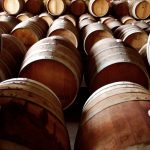
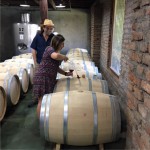
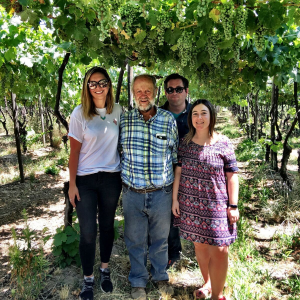
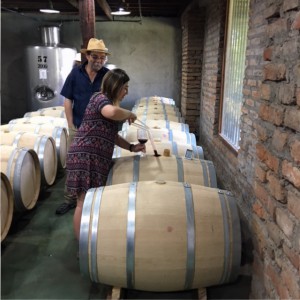
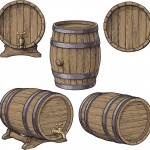
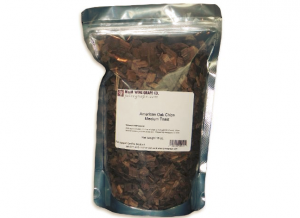

Recent Comments